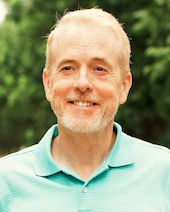Steve A. Maxwell, PhD

Associate Professor
Contact
Cell Biology and Genetics
4418 Medical Research Education Building II
Bryan,
TX
77807
s-maxwell@tamu.edu
Phone: 979.436.0804
Fax: 979.436.9293
Biography
Dr. Maxwell's primary interests include cancer, oncogenes, tumor suppressor genes, programmed cell death (apoptosis), chemoresistance and angiogenesis. His laboratory studies mechanisms of evolution of chemoresistance in diffuse large B-cell lymphoma (DLBCL). One current primary objective is to conduct a Phase I study that (1) confirms RTI-79 safety in platinum-resistant/refractory ovarian cancer patients, and (2) demonstrates signals of efficacy in humans (e.g., time-to-disease progression and changes in CA125 biomarker). A second objective is to better define the RTI-79 mechanism of action (MOA) by (1) determining how RTI-79 causes a rapid burst in superoxides, and (2) elucidating the basis of Nrf-2 pathway downregulation.Education and Training
- Abilene Christian University, BA, BS, 1980
- University of Texas Graduate School, PhD, 1985
Research Interests
- Dr. Maxwell's current research focuses on mechanisms of drug resistance in DLBCL. His team has developed a novel anti-cancer agent (RTI-79) that reverses drug-resistance in various cancers to multiple types of chemotherapies. He discovered a mechanism of action for reversing chemoresistance that involves oxidative stress through the dual action of generating ROS and downregulating the antioxidant Nrf-2 pathway. RTI-79 is not toxic to normal cells due to their intact Nrf-2 antioxidant response. Dr. Maxwell is focused on determining why Nrf-2 is downregulated in resistant cancer cells but not normal cells. His team is currently conducting Phase I clinical trials on pet dogs with lymphoma. They have treated 40 dogs (with owner consent) and have extended survival by 50-100% after two years. The average survival of dogs with lymphoma treated with chemotherapy is about 9 months; after co-administration of RTI with chemotherapy, survival increases to 13-24 months. After completion of the canine clinical trial, they anticipate attracting pharmaceutical investment to progress to human Phase I clinical trials.
Teaching Interests
- Dr. Maxwell has been actively involved in the medical teaching mission of the Texas A&M University Naresh K. Vashisht College of Medicine for over 25 years. He is currently course co-director for Foundations of Medicine II (FOM II) and Medical Student Grand Rounds (MSGR), teaches lectures in FOM II and Introduction to Disease courses, serves as a voting member of the Pre-Clerkship and Curriculum Committees, and interviews applicants for the Admission Committee. Dr. Maxwell has been actively involved with innovations in medical education through the development of the MSGR course and implementation of the first Team-Based Learning (TBL) sessions at the Bryan campus in the FOM II course. He was also involved in the Texas A&M Engineering Medicine (EnMed) curriculum development task force, organizing the EnMed biochemistry/genetics curriculum and developing five new TBLs. Dr. Maxwell has organized basic science mentoring of medical students in the development of their research presentations in MSGR. He has presented poster and oral presentations about the innovative MSGR approach at the Association of Biochemistry Educators (a consortium of biochemistry/genetics educators from 100 medical schools), the Texas Educator's Academies Collaborative for Health Professions (TEACH-S) hosted by Baylor College of Medicine, and the International Association of Medical Science Educators (IAMSE). The MSGR course was recently published in Academic Medicine journal as an innovative curriculum involving mentoring of first-year medical students by basic science faculty. Dr. Maxwell has collaborated with Dr. Gloria Conover, Director of Medical Student Research, in developing an MSGR-like selective for M3 students (MEID 820). In this innovative course, students choose a patient case they encountered during their clerkships and develop a mechanistic case report that integrates basic science into clinical aspects of the patient, proposing novel hypotheses/treatments through research of primary literature. A capstone is the publication of their mechanistic case report in a peer-reviewed journal. They were awarded a TAMU Presidential Transformational Teaching Grant to determine outcomes for the MEID 820 innovative experience. Dr. Maxwell also chairs the innovative grants program administered by the Academy of Distinguished Medical Educators. His future direction is to continue pursuing innovative methods of integrating basic and clinical sciences in a meaningful manner.
Awards, Recognition and Service
- Texas A&M University Provost APT Faculty Teaching Excellence Award- 2025